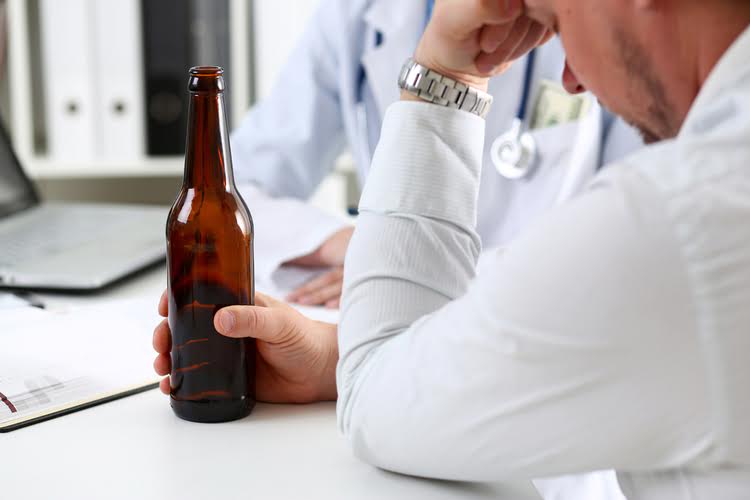Recognizing and addressing these triggers can be a vital step in maintaining recovery. Among the main factors that https://pachamamaretreats.org/103-addiction-recovery-quotes-to-inspire-healing/ contribute to relapse are overconfidence in recovery, psychological withdrawal symptoms, and feelings of isolation and loneliness. Individuals may begin to disengage from family and friends, avoiding social interactions that previously provided them with support. This isolation can intensify feelings of loneliness and stress, making it harder to maintain sobriety.
Understanding Addiction Triggers: What They Are and How to Manage Them

These systems include family, friends, support groups, and mental health professionals who can offer guidance, validation, and understanding. Developing a comprehensive relapse prevention plan tailored to one’s personal triggers is vital. Therapeutic approaches such as Cognitive Behavioral Therapy (CBT) and Dialectical Behavior Therapy (DBT) are highly effective. CBT helps individuals identify negative thought patterns linked to triggers and develop skills to reframe them. DBT emphasizes emotional regulation and mindfulness, enabling people to handle intense emotions without turning to substances.
The Pathway to Healing: Essential Steps of Recovery from Addiction
- Techniques such as mindfulness, emotional regulation strategies, and cognitive-behavioral approaches help individuals recognize and cope with emotional and environmental triggers.
- Obstacles in recovery are often caused by insufficient coping skills or an inability to plan effectively.
- Moreover, stress and emotional reactivity are closely linked to craving and relapse.
- Various treatment options, such as therapy, medication, and holistic approaches, can offer valuable support in addressing emotional relapse and ensuring a successful recovery journey.
The stages of a relapse are emotional relapse, mental relapse, and physical relapse. But according to the National Institute on Drug Abuse, the relapse rate for substance use disorders is comparable to other chronic health issues. That number includes people who return to treatment and eventually find long-term recovery. These emotional and social motivations highlight that substance use frequently fulfills psychological needs such as pleasure, acceptance, and relief. Recognizing these underlying drivers is crucial for prevention strategies and treatment, as addressing emotional gaps can reduce reliance on substances.
Psychological and Neurobiological Interventions for Emotional Regulation
Avoiding all of your triggers isn’t always an option, but running into one when you’re going about your daily business doesn’t necessarily have to trigger a relapse. Both chronic and acute stress increase the risk of drug addiction and may be the most common triggers for relapse. Stress is a part of daily life for most people, whether it’s being late to work in the morning or tense relations with a loved one. Health problems, increased responsibility and other events can result in stress that triggers drug cravings. Addiction is a chronic brain disease with a relapse rate similar to that of other chronic conditions like diabetes. When people stop their treatment plans for chronic conditions, they are more likely to relapse.
- Emotions like sadness, anger, loneliness, shame, and boredom frequently trigger relapse.
- For individuals dealing with anxiety or post-traumatic stress disorder (PTSD), these mindfulness techniques can be particularly valuable.
- DBT emphasizes emotional regulation and mindfulness, enabling people to handle intense emotions without turning to substances.
- Techniques such as mindfulness meditation and grounding exercises encourage individuals to stay present and aware of their feelings without judgment.
- Another critical aspect of boundary-setting is distancing yourself from relationships that no longer align with your recovery goals.
The lifelong nature of recovery
Most of the time they are not completely avoidable since people do not generally have complete control over the environments they move into and out of on a daily basis. But what is Oxford House individuals can anticipate and monitor their environment, and have a plan for healthy actions to take when emotional triggers present themselves. Here are the top 10 common relapse triggers you might encounter during your recovery journey. Understanding these triggers can help you stay motivated and on track with your recovery goals, ultimately leading to a healthier, happier life.
Effective Alternatives to Adderall
After the brainstorming session, ask your client to complete the worksheet independently. Let them know it is okay if they don’t finish it in one sitting — that it can be revisited and edited later. Discussing self-harm or suicidal thoughts can be difficult but is types of relapse triggers vital for ensuring safety. Approach these conversations with empathy, asking directly but gently about their thoughts.

Step 3: Explore negative thoughts

Additionally, athletes employing positive reframing strategies demonstrated better coping mechanisms, higher return rates to sport, and reduced fear of reinjury post-surgery (Flanigan, 2021). By deliberately reframing negative thoughts, individuals learn to express themselves more positively. The worksheet helps craft positive and empowering statements, fostering a constructive and affirming mindset, which, in turn, contributes to improved communication and interpersonal relationships.


Leave a comment